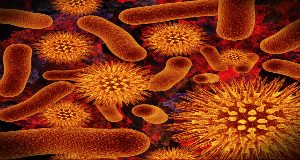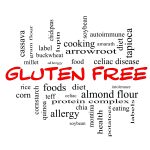Gut health – why is it important?
A growing body of evidence indicates that the trillions of microbes that live on and inside our bodies affect our health. Collectively, these microbes form our microbiome. Bacteria can be found all over our body – from our skin and mouths down to our hands and feet. But it is the gut microbiome that seems to be most important for our day-to-day health.

Gut bacteria are now being recognised more and more for their function in our immune system and overall health – and could even play a vital role in helping in the war against obesity. Our bowel is home to literally hundreds of species of bacteria – in fact it’s estimated that 60 percent of our faecal matter is made up of bacteria.
Where does our gut biome live?
The gut is full of bacteria, but most reside in the large bowel. There are a few lactobacilli in the stomach, more in the small intestine, but over 90% of the bacteria live in the large bowel. The balance of gut bacteria is called the gut microbiome or just gut biome. Biome is a word to describe the range of bacteria found in the gut environment. We can change the gut biome very quickly by changing our diet. Within hours of eating a different type of food our biome will have adapted and the balance of bacteria will be different. This might have been very useful in ancient times as leaves, nuts and berries may have been suddenly replaced by meat after a successful hunt. And the sudden change in diet would have needed different bacteria to cope.

But this also means that a weekend of bad eating and drinking can wreak havoc with our gut balance. Even short courses of anti-biotics can knock out healthy bacteria and leave room for nasties to grow. The good news is that you can quickly change things back to good health with the right foods and probiotics too. Within 3-4 days, your gut can be back to great.
There are 6 main types of bacteria found in the healthy bowel. Bifidobacter and bacteroides should be the most common, followed by E.Coli and Lactobacillus. Now people think of E.Coli as being bad, but most E.Coli are healthy bacteria that we definitely need in our gut. There are a few types of E.Coli which will make us sick, such as E.Coli type 157:H7 which can give us gastro. It is usually found in beef cattle but may contaminate spinach and other vegetables.
What do gut bacteria do?
Functions of healthy gut bacteria include
- Fermenting and accessing energy substances such as short chain fatty acids
- Talking to the Immune system
- Producing vitamins such as biotin and Vitamin K
- Preventing growth of bad bacteria
- Neutralising toxins
Health problems linked to the gut
It’s important to note that the use of antibiotics, the contraceptive pill, a diet high in refined carbohydrates and unhealthy fats can also contribute to intestinal imbalances. Some of the more common health issues involving the bowel include: diarrhoea, bloating, gas, flatulence, constipation, pain and IBS.

Other problems include headaches and mood swings. We know that endorphin receptors in the brain respond to drugs like morphine and foods such as wheat. Gluten intolerance can cause mood swings as people get a high off the natural endorphins in wheat then suffer depression and withdrawal symptoms on wheat free days. Joint pain and fatigue are common symptoms of gut problems as well as fibromyalgia and recurrent colds and flu from a weakened immune system.

Treatment options for low levels of healthy gut bacteria can include taking prebiotics as well as probiotics. Pre-biotics provide the food that healthy bacteria need. Bad bacteria need to be weeded out either with herbs or anti-biotics. The upshot of all this is that, the health of your bowel is reflected in your overall health, so it’s vitally important you consider gut health as part of an overall healthy lifestyle plan. Either way, get your gut biome right and your general health will thank you.

